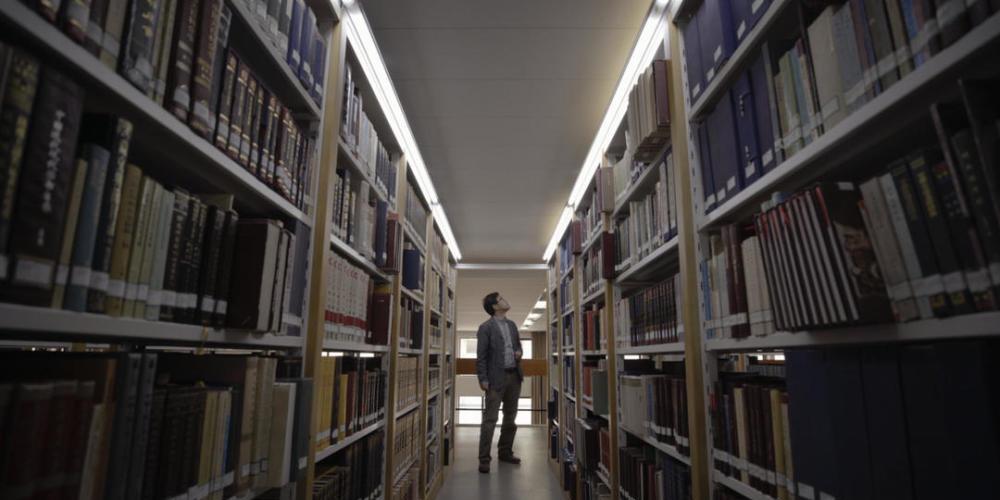Wen \ Li Yuxin
"'We live forever,'" the book says, even if the pages are torn or the words are licked away by the roaring flames. Books last longer than we do, and our delicate body temperature cools, dissipates, and dies with the memory..."
For many literary friends, when they see the above words and phrases emerge, they will think of the short poem "But there are books" by the Polish-American poet Chesław Milosz. But at the moment, when people talk about "But there are books", perhaps they talk more about a documentary of the same name that tells the stories of all kinds of book writers, book makers, book lovers, and book readers.

Recently, the second season of "But There Are Books" was broadcast online on Station B. Like the first season, the documentary series retains a length of about 30 minutes per episode, and is only the total number of episodes of 6 episodes. More importantly, the documentary seems to be breaking the so-called "sequel curse", and as of now, the second season's score on a book rating website has reached a high score of 9.5, higher than the first season's 9.1. You know, in the current film and television market, the rating of the second part is higher than that of the first work, which is indeed relatively rare, not to mention that the two seasons have maintained more than 9 points.
Why does a documentary with a book as the theme and reading as a story get such a high rating? Because no matter how you look at it, the overly unpopular subject matter and niche cuts, coupled with the trend of the times of reading fragmentation, make this documentary a work that is not very "timely". But unexpectedly, the film won the resonance of many young people after its broadcast, and won the best TV documentary award of the "30th China Television Golden Eagle Award", which won the double recognition from the industry and the audience.
To shoot a "cold" subject well, the difficulty can be imagined. Coupled with the abstraction of the concept of reading, many people mention reading, always giving it a very profound meaning and a heavy concept, so that the audience is "discouraged". But the subtlety of "But There Are Books" lies in the fact that between its "weightlifting", it tells the charm of reading and the beauty of books.
Zhu Yue, a bald editor who spares no effort to excavate new people and recommend works by "unscrupulous means", compiles a book for a pair of glasses; the post-80s couple who "drive a book cart to walk China"; Ning Chengchun, who has been practicing for fifty-five years and witnessing the reform and development of Chinese book design... In this documentary, although there are many characters who have made great contributions in the field of books, they have not told the creative process of famous authors, analyzed the stories behind classic masterpieces, or restored the restoration process of precious ancient books and rare books. The characters selected in the film are more of those who are enthusiastic about books, creators, and book lovers, and are countless small and vivid "little people". Their daily life about books, or boring or repetitive, or interesting or jumpy, and from the beginning to the end, is the love and dedication to books.
In the second season, this character selection continued. For example, The post-95s Jigme, who returned to the grassland to establish the first public welfare library, opened a broad window for the children in his hometown; Gu Xiaojun, an ordinary librarian of the National Library, taught himself more than a dozen languages such as French, Italian, and ancient Greek in books... The film chooses a more fresh and interesting perspective, and different types of character stories, so that the audience's cognition of the book is no longer limited to the author, editor and reader, but has a richer level of understanding.
In the fast age, the space and time of reading are constantly occupied and even narrow. The birth of "But There Are Books" seems to be a powerful answer and discussion of "why people should read". As the inspiration for the title of the documentary, the short poem "But There Are Books" says: "But books will be erected on the shelves, and they will be born, from people, but also from the sublime and the light."